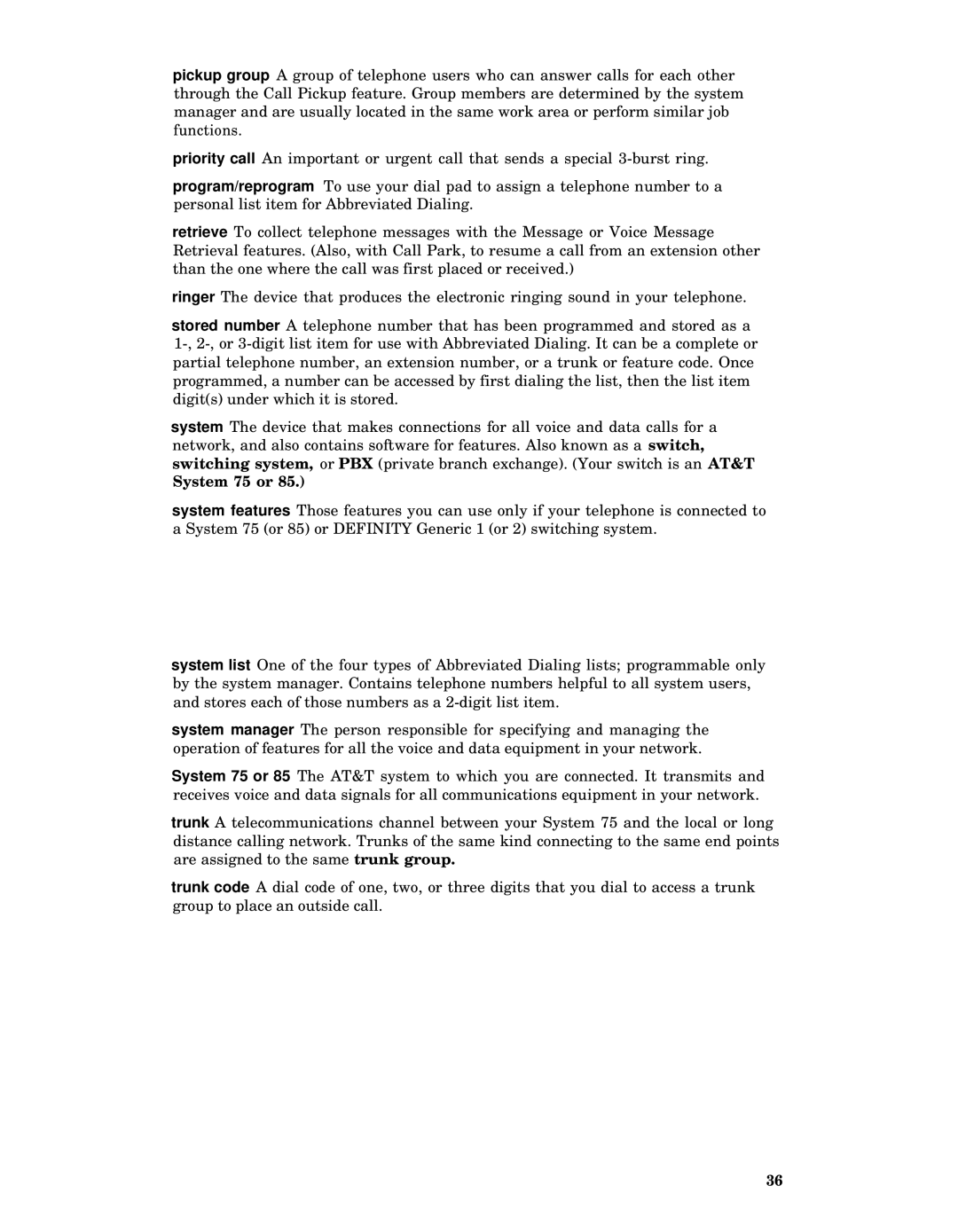pickup group A group of telephone users who can answer calls for each other through the Call Pickup feature. Group members are determined by the system manager and are usually located in the same work area or perform similar job functions.
priority call An important or urgent call that sends a special
program/reprogram To use your dial pad to assign a telephone number to a personal list item for Abbreviated Dialing.
retrieve To collect telephone messages with the Message or Voice Message Retrieval features. (Also, with Call Park, to resume a call from an extension other than the one where the call was first placed or received.)
ringer The device that produces the electronic ringing sound in your telephone.
stored number A telephone number that has been programmed and stored as a
system The device that makes connections for all voice and data calls for a network, and also contains software for features. Also known as a switch, switching system, or PBX (private branch exchange). (Your switch is an AT&T
System 75 or 85.)
system features Those features you can use only if your telephone is connected to a System 75 (or 85) or DEFINITY Generic 1 (or 2) switching system.
system list One of the four types of Abbreviated Dialing lists; programmable only by the system manager. Contains telephone numbers helpful to all system users, and stores each of those numbers as a
system manager The person responsible for specifying and managing the operation of features for all the voice and data equipment in your network.
System 75 or 85 The AT&T system to which you are connected. It transmits and receives voice and data signals for all communications equipment in your network.
trunk A telecommunications channel between your System 75 and the local or long distance calling network. Trunks of the same kind connecting to the same end points are assigned to the same trunk group.
trunk code A dial code of one, two, or three digits that you dial to access a trunk group to place an outside call.
36
